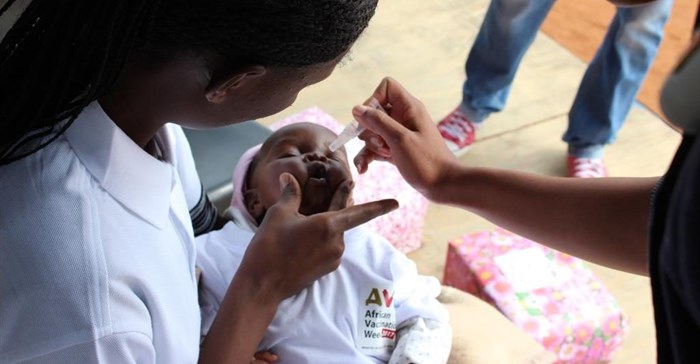More than 18-million Ugandan children to be immunised against measles, rubella and polio

The country has experienced measles outbreaks across numerous districts in the past three years. At the same time, polio remains a daunting threat, given evidence of vaccine-derived strains circulating in neighbouring countries.
The five-day mass immunisation campaign, funded by the government of Uganda; GAVI, the Vaccine Alliance; the United Nations Children’s Fund; and the World Health Organisation (WHO); intends to tackle these three public health challenges.
The campaign, to be conducted in schools for the first three days and in communities for the last two days, targets all children younger than 15 years, whether previously immunized or not, in order to interrupt circulation of these diseases. The campaign will be a launch pad to introduce the measles-rubella vaccine into the country’s routine immunisation schedule.
"This campaign does NOT replace the routine immunization schedule. Parents, caregivers and all concerned must ensure that all children receive and complete all the vaccines specified on our immunization schedule after the campaign,” said Dr Jane Ruth Aceng, Uganda minister of health.
The mass campaign provides opportunity to intensify sensitisation of communities on measles, rubella and polio as well as disease surveillance and to investigate any unreported but suspected cases of these diseases. This is particularly important because of the declining trend in routine immunisation coverage in the country.
“This is an extremely important exercise,” said Dr Matshidiso Moeti, WHO Regional Director for Africa. “It represents an impressive level of commitment to health care that we need more than ever across the African region to prevent deaths, disease and suffering and to avoid unnecessary expenditure when caring for people who are sick.”
During the campaign, teams of health workers will set up vaccination service delivery posts across the country, with the objective of attaining more than 95% immunisation coverage, which is needed to interrupt the transmission of measles, rubella and polio.








